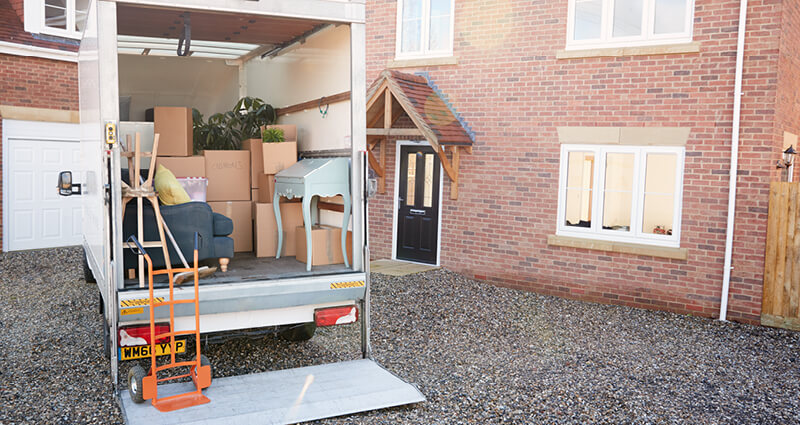1. Be prepared for warmer weather
Texas is big, and conditions can vary widely depending on where you live within the state. From humid to dry and moderate to extreme, Texas weather is an experience.
Summers are generally hot and temperatures average in the mid to upper 90s while winters average around the mid-60s, with rare drops when an occasional cold front comes through the state.
Texas also averages more tornadoes per year than any other state and the Gulf Coast has been hit by several major hurricanes including Carla (1961), Celia (1970), Ike (2008) and Harvey (2017). Be prepared for high winds during storms and, if possible, find a home with a storm shelter or basement and easy access to the main roads.
Indeed, the weather in Texas is highly unpredictable. For example, Alvin, Texas holds the record for the most rain ever to fall in the U.S. in 24 hours; 43 inches of rainfall during Tropical Storm Claudette in 1979.
If you don't love warm weather, it might be best to reconsider your move. On the other hand, if you are someone who thrives in it, moving to Texas might be the best decision you could have made!
2. Lower taxes
Texas is 1 of only 7 states where residents pay no state income tax. The state sales tax isn't very high either. There are also several tax incentives for businesses.
Visit the Texas Economic Development Corporation to learn more about the competitive tax climate Texas offers and its advantages.
3. Real estate is affordable
Texans are big on home ownership. According to Zillow, the median home value for homes for sale in Texas is about $298,500 in 2023. To compare, the national median home price in the U.S. is about $431,000 in Q3 of 2023, according to the Federal Reserve. That’s over $130K cheaper!
Let’s take a look at some of the popular areas in Texas to help you pick your dream home. All median home prices are according to Zillow.
Harker Heights
This small Texas town offers families several great options for spending quality family time including lakes, community parks, trails and a host of other activities to engage in including bowling, skating, boating and camping.
Population: 34,834
Median Home Price: $304,600
Pearland
Popular as one of the safest neighborhoods to live in, the crime rate in this suburb of Houston is significantly lower than the national average. The Pearland Town Center offers several dining and shopping options. The city’s proximity to major job hubs is also a big plus for residents.
Population: 125,990
Median Home Price: $365,685
Little Elm
This fast-growing suburb of Dallas is popular with active families. 5 local community parks including McCord Park and Little Elm Park host a variety of city events and festivals.
Population: 51,042
Median Home Price: $426,403
Round Rock
Close to the state's capital, Austin, Round Rock offers its residents the best of both small-town charm and the conveniences of a big city. It's known as the “Sports Capital of Texas,” because of its central location and premier destination for amateur, youth and recreational sports in the state.
The city is home to the AAA Pacific League minor league baseball team, Round Rock Express and several other great sports facilities. Significant employers including Dell, IBM and IKEA have offices here.
Population: 123,876
Median Home Price: $436,303
Frisco
Residents of this city send their kids to schools ranking in the top 10% in the state by GreatSchools.org. The city is also home to the Frisco Heritage Museum.
Population: 210,719
Median Home Price: $650,075
While the cost of living varies from city to city, most Texas cities are well below the national average. It's always best to do your research before the big move and make the best choice for your family. GreatSchools.org is a useful resource for information about schools in your chosen city, including ratings and reviews.
4. You'll save on electricity bills
Texas has a deregulated electricity market, meaning consumers can choose their energy supplier. This allows you to select the company that best fits the needs of your home and family. You're also free to change providers. If you're coming from a regulated market, that might sound risky.
Don't worry – you’ll never experience service interruptions when you switch. Once you've chosen your new plan, it takes about 7 business days for the change to go into effect, and you will get your first bill from your selected provider during their next billing cycle without any interruptions to your service.
The Public Utility Commission of Texas has created some excellent resources for shopping rates and providers. Visit Power to Choose or Power to Save to help get you started and see the options available to you.
5. A booming job market
The unconventional oil and gas boom over the past few years has turned Texas into an economic juggernaut.
The Lone Star State is strong in the petroleum, wind energy, healthcare, education and technology sectors. Some of its major employers include Texas A&M University, MD Anderson Cancer Center, Dell, ExxonMobil and Lockheed Martin Aeronautics Company.
6. Foodie's paradise
The great state of Texas is a melting pot of culinary comforts. Chiles everywhere, buffets of Tex-Mex cuisine, barbeque and happy hours are just a few of the multitude of gastronomic experiences this state offers. There are plenty of options to satisfy your wandering palate.
A common point of interest among most Texans is their love for food and travel. While there is a lot to absorb food-wise in the great state of Texas, this road trip will help guide you through some of the most buzzed-about food destinations you’ve probably read about and not yet visited.
7. Heavy traffic is a part of Texas life
The first thing you’ll notice about the Lone Star State is that things are spread out geographically. Unfortunately, one of the very real challenges when moving to Texas is the lack of comprehensive public transit.
Unless you are living within a 3-mile radius of your workplace, you'll spend a lot of time commuting. Traffic is awful as the roads in most areas have not kept pace with the ever-growing population, so be prepared for the inevitable.
8. Everything is bigger here
If you’re one of those folks who like things small, then Texas is not the state for you. The geography isn't the only oversized item - literally, everything is bigger! Food portions are huge, the shopping malls are enormous, houses are big, roads are large and the list goes on.
Moving advice - quick tips
Choosing your moving company: When researching moving companies, check to be sure the company you choose has a TxDMV license before hiring them.
Changing your address: Ideally, you’ll want to update your address information online with USPS a week before your move. Then you can be assured your mail is moving along with you, and you’ll receive coupons in the mail to help you save in your new neighborhood.
Vehicle Registrations, Voter Registrations, etc.: You'll find all the information you'll need on the official website of the State of Texas.
Driver’s Licenses: The law dictates that you must secure a Texas driver’s license within 90 days of moving to the state. Find more information here.
Voter Registration: The Texas Secretary of State’s website will give you all the details on how you can register to vote in Texas and the polling location for your new address.
Vehicle Registration: Visit the Texas Department of Motor Vehicles for more information on how to get your vehicle registered in Texas.
More tips for moving to Texas
Check out our Moving Hub for a wealth of resources to aid in your preparations for your big move. We have checklists to help you get organized, packing tips, moving hacks and more!




































